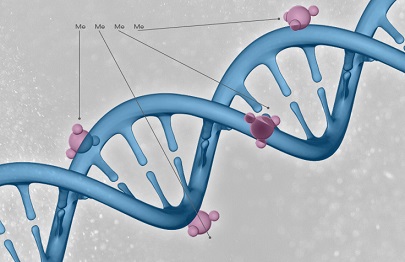BREAKING NEWS! Study Uncovers Epigenetic Crosstalk Between COVID-19 mRNA Vaccines And Human Genes With Potential Health Implications!
COVID-19 News - Epigenetic Crosstalk - mRNA Vaccines And Human Genes -Health Implications Jul 14, 2023 1 year, 9 months, 1 week, 1 day, 18 hours, 22 minutes ago
These epigenetic crosstalks could result in several diseases, including neurological & cardiovascular disorders, cancers, & autoimmunity issues!
COVID-19 News: In a new study, a researcher from the Department of Clinical and Experimental Medicine at the University of Messina, Italy, conducted an in silico investigation to explore the occurrence of epigenetic crosstalk between mRNA vaccines encoding the spike (S) protein of SARS-CoV-2 and the human genome.

The study aimed to assess the potential health effects of these crosstalks, including the development of neurological and cardiovascular disorders, cancers, and autoimmune conditions. By analyzing nucleotide sequence complementarity, the researcher identified matches between the BNT162b2 mRNA vaccine and several human genes, both coding and noncoding.
Interestingly, the vaccine exhibited stronger interference with epigenetic pathways compared to the original SARS-CoV-2 S gene. These findings raise important questions regarding the long-term health complications associated with mRNA vaccines.
Since the emergence of the COVID-19 pandemic, mRNA vaccines have supposedly offered hope in controlling the global crisis. Two prominent mRNA vaccines, BNT162b2 and mRNA-1273, have been widely administered to allegedly combat the allegedly spread of SARS-CoV-2. These vaccines encode the spike protein of the virus, but with specific modifications to enhance their efficacy and stability.
Various concerns have been raised about the vaccines and their potential impact on cellular processes due to their introduction into skeletal muscle fibers. As foreign mRNA molecules, they have the potential to disrupt essential cellular functions and interact with host cell noncoding RNAs (ncRNAs), leading to complex crosstalk and potential disease development. These alarms have been voiced in various past studies and
COVID-19 News reports.
Using computational analysis, the researcher examined the nucleotide sequence complementarity between the BNT162b2 mRNA vaccine and the human genome, including both coding and ncRNA genes. She compared these results with those obtained from the original SARS-CoV-2 S gene sequence. Various bioinformatics tools and GWAS databases were utilized to assess the functional activity and potential health effects of the matched human genes.
Shockingly, the study analysis revealed matches between the BNT162b2 mRNA vaccine and 19 human genes involved in enzyme reactions, nucleotide or cation binding, signaling, and carrier functions.
Additionally, the vaccine exhibited complementary matches with 17 ncRNA genes, potentially interfering with epigenetic pathways.
In comparison, the original SARS-CoV-2 S gene showed no matches with the human genome.
These study findings suggest that the vaccine and the S gene used in the vaccine could disrupt epigenetic mechanisms in target cells, potentially l
eading to long-term complications.
Conclusion
This pioneering study highlights the presence of nucleotide sequence complementarity between mRNA vaccines encoding the SARS-CoV-2 S protein and human genes. The results suggest that these vaccines, including the BNT162b2 mRNA vaccine, could engage in epigenetic crosstalk within human recipient cells. Although the patterns of complementarity differ from the original SARS-CoV-2 S gene, both may contribute to an imbalance in epigenetic regulation and the development of long-term health complications. Further research is necessary to fully understand the epigenetic effects of mRNA vaccines and their potential implications.
The study findings were published in the peer reviewed journal: Vaccine.
https://www.sciencedirect.com/science/article/abs/pii/S0264410X23008198
For the latest
COVID-19 News, keep on logging to Thailand Medical News.
